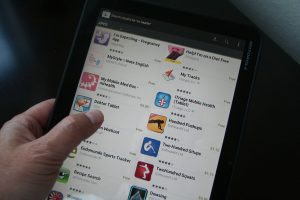 Rising costs and access to health care are issues that weigh heavily on Americans and their families. These issues deepen when it comes to mental health. Common mental illnesses can be extraordinarily disabling, and yet, many patients do not receive treatment.
Rising costs and access to health care are issues that weigh heavily on Americans and their families. These issues deepen when it comes to mental health. Common mental illnesses can be extraordinarily disabling, and yet, many patients do not receive treatment.
What’s Next For:
Revolutions?
Syria?
Mexico?
Japan?
The United States?
Earthquake Safety?
Climate Action?
California Water?
Climate Science?
Solar Energy?
California Fruit Farming?
Technology Investing?
Nanoscience?
Digital Storage?
Artificial Intelligence?
Cyber-Threats?
Social Media?
Space Exploration?
Science Museums?
The Sagehen?
Biodiversity?
The Blind?
Big Data?
Mental Illness?
Health Care Apps?
Maternity Care?
Etiquette?
Ballroom Dance?
Thrill Seekers?
Outdoor Recreation?
Funerals?
Writers?
Movies?
Manga?
Alt Rock?
Women in Mathematics?
Stephen Smith ’17 believes technology will be part of the solution.
After winning his own battle with obsessive compulsive disorder (OCD), the economics grad has used his experience to help others by creating a smart-phone app that provides on-the-go treatment to fight the condition.
The app, which he dubbed nOCD, records real-time data, offers guided cognitive behavioral exercises and allows people with OCD to join in-app support communities at any hour of any day. With this technology, users get 24/7 clinically approved care and are connected to a community that understands them.
“People are always wondering how you’re going to treat mental illness, given the shortage of licensed mental health clinicians,” says Smith. “And the answer is through technology.”
Smith sees this technology trend not only for mental health but for healthcare overall.
“The healthcare industry today is going ‘more mobile’ and ‘more digital’ given that technology offers consumers an always-on, personalized treatment experience,” he says. “Since the majority ‘at-risk’ populations are already actively engaged in technology, utilizing digital solutions to deliver care can have both an immediate clinical as well as an economic impact for both the patient and provider.”
